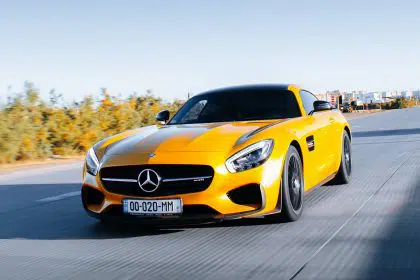The automobile giant is also working to establish eight giga-factories that will manufacture the cells for its electric car batteries. Besides, Mercedes also plans to set up a network of Plug & Charge Stations.
Automobile giants are making all efforts towards their shift to electric vehicles. On Thursday, July 22, Mercedes parent company Daimler announced that the brand will go all-electric by 2030.
The latest decision comes as Tesla continues to eat into the market car of these automobile giants. Starting 2025, Daimler also stated that all of Mercedes-Benz’s “newly launched vehicle architectures will be electric-only”. As a result, customers will get an option to choose between a wide range of models it makes.
For the next eight years between 2022 to 2030 Mercedes-Benz has planned a € 40 billion investment to cater to this transition. This will help the brand to significantly boost its R&D and expand its electric-car portfolio. By 2025, the Germany-based premium automobile brand will introduce three new electric-only architectures:
- MB.EA – This will focus on medium and large passenger cars
- AMG.EA – This will focus and cater to the performance vehicle.
- VAN.EA – This will focus only on light commercial vehicles and vans.
In a press statement on Thursday, Ola Källenius, who heads up both Daimler and Mercedes-Benz said:
“The EV shift is picking up speed — especially in the luxury segment, where Mercedes-Benz belongs. The tipping point is getting closer and we will be ready as markets switch to electric-only by the end of this decade. This step marks a profound reallocation of capital.”
Mercedes Setting Up 8 Giga Factories for Its All-Electric Cars
Working with global partners, Mercedes plans to establish eight giga factories to manufacture cells for its electric car batteries. This will be in addition to the nine manufacturing plants dedicated to battery building systems. Besides, it will also establish a network of “Plug & Charge” stations. This network will go live ahead this year along with the launch of EQS slated later in 2021.
Daimler further noted that Mercedes is planning to “team up with new European partners to develop and efficiently produce future cells and modules, a step which ensures that Europe remains at the heart of the auto industry even in an electric era.”
Governments across the world are initiating serious measures to reduce the carbon footprint contributed by automobiles. Mercedes’ plans are quite in tune with the UK government’s timeline of stopping the diesel and gasoline cars by 2030. By 2035, the UK government plans to achieve cars with zero tailpipe emissions.
Similarly, the European Commission is planning a 100% reduction in CO2 emissions by 2035. As a result, other automobile giants are working on similar plans. Another European automobile giant expects 50% of the sales by 2030 to be of electric vehicles. By 2040, Volkswagen said that almost 100% of its vehicles will be zero-emission.
Mercedes is also partnering with major tech firms to work on future projects. The automobile giant is partnering with chipmaker Nvidia to commercialize software-powered cars. On the other hand, the parent group Daimler is also working with Ocean Protocol to test blockchain-based data sharing in the supply chain.
Bhushan is a FinTech enthusiast and holds a good flair in understanding financial markets. His interest in economics and finance draw his attention towards the new emerging Blockchain Technology and Cryptocurrency markets. He is continuously in a learning process and keeps himself motivated by sharing his acquired knowledge. In free time he reads thriller fictions novels and sometimes explore his culinary skills.




